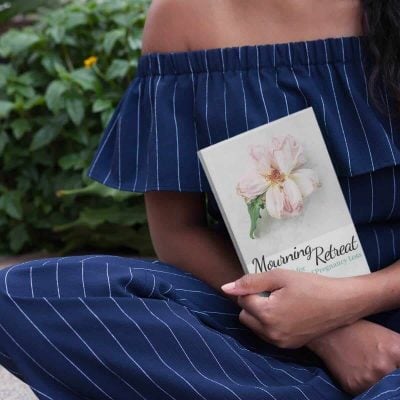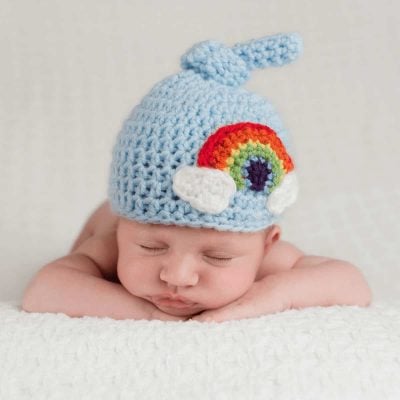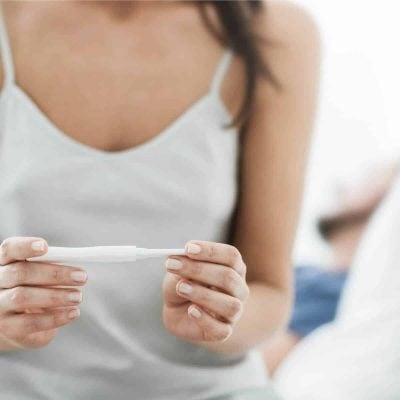
Miscarriage + Loss
Miscarriage + Pregnancy Loss
Miscarriage, also known as pregnancy loss, is a spontaneous and typically unexpected loss of a pregnancy before the baby can survive outside of the womb.
Our Top Miscarriage Articles
- Beth’s ectopic pregnancy story
- Our favorite miscarriage gifts
- Why you don’t have to attend a baby shower after miscarriage

Medical terms are at odds with the way most (though not all) women experience such loss. Scientifically, the baby is called an embryo or a fetus, and the miscarriage is referred to as an abortion. But, to most pregnant women, this is a personal loss that causes emotional grief, anxiety, depression, guilt, and self-blame. For the record, self-blame is totally unnecessary.
How many pregnancies end in miscarriage? Estimates suggest that up to 25% of pregnancies end in miscarriage, though many before a woman knows she’s pregnant. You can join the 1 in 4 community on Instagram.
Signs of Miscarriage
There are a few warning signs that you can look out for. Many pregnant women panic when they notice bleeding in the early stages of pregnancy.

Call your doctor if you experience red bleeding, but don’t panic. There are many reasons bleeding can occur during pregnancy that don’t result in pregnancy loss.
There are many potential causes of bleeding in early pregnancy, including implantation bleeding, subchorionic hematoma, and more.
Miscarriage Symptoms
Symptoms can include any or all of the following:
- light spotting to heavy bleeding
- back pain
- blood clots
- cramps.
A potential sign can be loss of regular pregnancy symptoms, but pregnancy symptoms themselves are not directly associated with miscarriage. Pregnancy symptoms may also regulate due to hormonal changes, and some women experience pregnancy with no symptoms at all.
Miscarriage Causes
There are a few causes that can induce a miscarriage, but Undefining Motherhood wants to be clear on one main point first: the miscarrying mother is not at fault. Exercising, drinking coffee, going to work, or having sex do not induce miscarriages.
Rather, miscarriages are almost always caused by genetic or physiological circumstances.
- Fetal genetic abnormalities: sometimes, during conception, chromosomes don’t work together to form a baby that can survive outside the womb
- Physical anomalies within the mother’s body: things like uterine abnormalities, blood clots, pools of blood in the gestational sac, major autoimmune disorders, et cetera
- Extreme trauma: car accidents and other tragic events that injure the womb

Note that trauma must be extreme. Many women endure experiences like bad car accidents and still carry a successful pregnancy. Research estimates that 50% of miscarriages are caused by genetic fetal abnormalities.
The Truth About Pregnancy Loss
Miscarriage is a tragic event that affects millions of women and their partners. At Undefining Motherhood, we want you to feel like you can openly talk about your loss and get to know other mothers who share similar experiences.
You are not alone!


What’s a Rainbow Baby? Rainbow Baby Meaning & What It’s Like to Have One
Rainbow Babies Having a child after pregnancy loss, stillbirth, or neonatal death can be both exciting and terrifying. A child born after these traumatic events is usually called a rainbow baby. But while this rainbow baby definition is simple, the actual meaning of having a rainbow baby is much more complex. After suffering from recurrent […]
Support After Stillbirth: What Not to Say & What TO Say
There are a lot of things I want to say in regards to how to give support after a stillbirth. Let’s say you heard the tragic news that someone you care for is going through an unimaginable loss and you want to do something for them; you want to support them. But you want to […]
A Father’s Journey With Pregnancy Loss: Evolving Emotions, Marriage Rapids, and Redemptive Grief
There is a myth about parenthood. It goes something like this: You will be able to have children when (and only when) you want. Your experience having children will follow the pathway you choose for it. Your children will be healthy. Reality, as our community frequently notes, is quite different from the myth. Pregnancy loss […]
What is a Chemical Miscarriage? Signs & What to Expect
“Chemical pregnancy” and “chemical miscarriage” are among my least favorite words used to describe pregnancy loss. I take issue with a lot of the medical terms for miscarriage, but what’s maddening about “chemical pregnancy” is that the term makes it sound like the pregnancy was never real. But a chemical pregnancy is a real pregnancy. […]
Pregnancy After Miscarriage: Vulnerability, Hope, and Anxiety
Pregnancy after miscarriage often produces anxiety. Find out what to expect trying to conceive & during pregnancy after miscarriage.
10 Sweet Rainbow Baby Announcement Ideas
Announcing a rainbow baby can be a giant bag of emotions. You’re excited and scared. You know people will celebrate, and you want to celebrate, but you may also have some lingering desire to temper your feelings. Many people worry about how their rainbow baby announcements may potentially trigger other moms dealing with infertility or […]
Miscarriage or Period: How To Tell the Difference
You know that feeling when you’re trying to conceive–your period is due any day now, and you wipe and see blood. Maybe it’s heavier than usual, or it has bigger clots. Maybe the cramping feels stronger, or you’re a few days late and were really hoping for a positive pregnancy test. I’ve been there, friend, […]
Early Signs of Miscarriage: When to Worry and When to Stay Calm
When I experienced my first miscarriage, a blighted ovum, I had no idea you could lose a pregnancy without any symptoms whatsoever (a situation called a “missed miscarriage.”) I was nauseous, had food aversions, experienced cravings, had no cramping or bleeding, yet still, and ultrasound confirmed that I had lost a very wanted pregnancy. I […]
20 Miscarriage Quotes that Brought Me Comfort
The experience of pregnancy loss can be so heartbreaking, and the grief is hard to navigate because it’s so intangible. You may have a positive pregnancy test or ultrasound photos to remind you of the life that lived inside you. But there are no tangible objects–usually no gravesite to visit, no clothes that smell like […]
What to Say to a Parent who Lost a Child
This article is the fourth installment of a series by Michelle Valiukenas, founder of the Colette Louise Tisdahl Foundation. This is one loss mom’s journey of finding her way after losing her daughter, Colette. You can find part one of Michelle’s story here, part two here, and part three here. There are many things over the years […]
